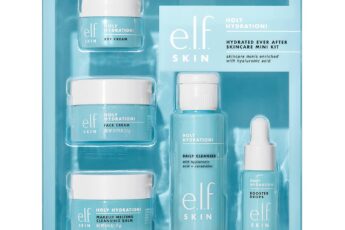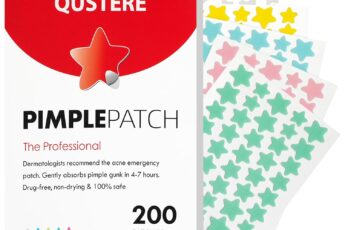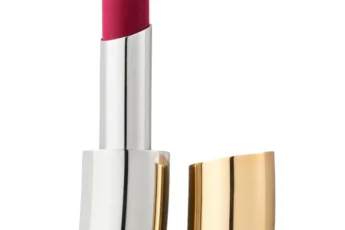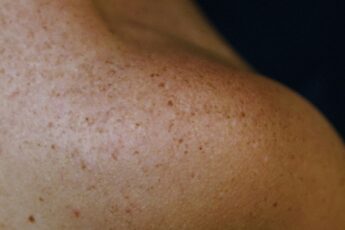How can I get better at skin care? This is a question that is often brought up because there is no overall answer. It means more than just using the right products; it’s all about knowing what your skin needs and building a skincare routine that works. With all the serums, toners, and cleansers out in the market, I can understand why so many of us get lost, but you don’t have to be a skincare expert to see improvements. After all, skincare is about making small, consistent steps every day towards a healthier and radiant complexion in the long run.
In this review, I will take you through some major skin care practices, focusing on how you can develop a routine that suits your needs. From skin type to product selection, I show you tips and tricks to take your skincare game to the next level. Be it starting totally afresh or looking to better a current one, take this as your roadmap to better skincare.
Table of Contents
Understanding Your Skin Type and Particular Needs
Knowing your skin type is the first way to find what works for you. All skincare products work differently according to your skin’s particular needs. Being able to tell whether your skin is dry, oily, combination, or sensitive might just make all the difference. So, here’s a quick rundown:
Dry Skin: This generally feels tight, can have flaky patches, and requires extra hydration.
Oily Skin: It tends to shine and has more acne; products controlling oil make sense.
Combination Skin: Different areas of this skin are often oily, while other areas appear dry, and the treatment is often about finding some sort of balance.
Sensitive Skin: This is skin that generally reacts rather easily to the products used on it. The best course of action to take is to always use gentle ingredients.
Also, skin concerns like acne, dark spots, or dryness will also guide you as to which product suits best for certain skin concerns. Knowing your skin type and concern allows you to set yourself up in building a routine that really works.
Basics of a Daily Skincare Routine
The basics of a good skincare routine involve a few steps, but each step involves its purpose.
Cleaning: It is meant to clean the skin of dirt, oil, and makeup and forms the foundation of everything else. Pick a cleanser that best suits your skin type. Sensitive skin benefits from a gentle skin cleanser that avoids irritation, whereas oily skin benefits from a cleanser that contains salicylic acid.
Hydrating: Hydration of skin keeps the barrier strong and protects your skin from the environmental system. Choose between gel moisturizers for oily skin and slightly creamier ones for dry skin.
Sun Protection: Sunscreen will prevent the signs of potential damage and aging. Remember, SPF isn’t just for sunny days; it shields your skin from damaging UV rays throughout the year.
These simple steps are the foundation of any routine that will keep your skin clear, hydrated, and protected.
Product Spotlight – e.l.f. Skincare Mini Kit
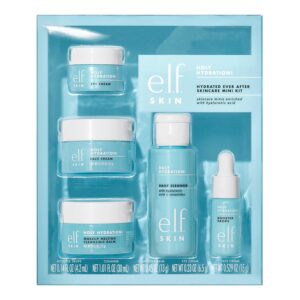
This mini kit from e.l.f. comprises the essentials in travel-friendly sizes for a complete skincare routine. Here’s everything you can expect to find inside this kit:
Hydrate and Cleanse Routine: It contains Daily Cleanser, Makeup Melting Cleansing Balm, Hydrating Booster Drops, Holy Hydration Face Cream, and Eye Cream. Each product can be used to clean and hydrate your skin to make it soft.
Skin-Loving Ingredients: It’s packed with hyaluronic acid, ceramides, and peptides known to hydrate and fortify the skin’s moisture barrier.
Pros
- A full-size hydrating set is included.
- Products are vegan and cruelty-free, catering to ethical skincare.
- Travel-Friendly Size: Great for on-the-go use as you can take this small set anywhere.
Cons
- People with sensitive skin should patch-test because there is a possibility this product could cause irritation.
This kit makes a simple way to kickstart a routine in pursuit of a more constant ritual; if looking for hydration.
Why Should I Exfoliate?
Exfoliating helps remove dead skin cells that clog pores and dull your natural brightness. The following are the two main types you should consider:
Chemical Exfoliation: Acid systems, such as glycolic or salicylic acid, actually break down the dead skin. Very often it is gentler from physical scrubs and suitable for the majority of skin types.
Physical exfoliation: involves tiny elements or brushes that directly scrub the skin. It is effective and produces immediate good results, but must be used rarely because it may further irritate sensitive skin.
Exfoliating once or twice a week may help your skin drink other products and leave it feeling fresh. However, over-exfoliation can lead to redness and irritation, so just remember not to overdo it.
Product Spotlight – Qustere Pimple Patches for Face
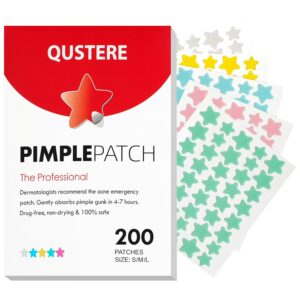
Qustere’s pimple patches are colorful, star-shaped acne patches to help shrink pimples and absorb impurities. Here is what makes these patches unique:
Natural Ingredients: Tea tree oil, salicylic acid, centella, hydrocolloid-the whole group of these work together to fight acne, calm redness, and clear your skin.
Convenience and effectiveness go hand in hand with being able to wear overnight, because it sticks well to draw out impurities and expedite the healing process in which they were created for.
Pros
- Perfect for acne spot treatment.
- Vegan-friendly, works for all skin types.
Cons
- Not effective for deeper cystic acne.
- May have issues sticking on oily skin.
These patches do wonders for quick and mess-free treatment for occasional breakouts.
Enhancing Your Routine with Serums and Targeted Treatments
Serums are concentrated with active ingredients and help target particular skin concerns. Some common ones include:
Vitamin C: It tends to brighten the skin and lighten dark spots, so it’s good for evening out the skin tone.
Hyaluronic Acid: Hydrates and plumps up the skin. It’s ideal for dry or dehydrated skin.
Niacinamide: Reduces redness and minimizes pores; hence, it is great for sensitive or acne-prone skin.
It does take a little practice to learn how to layer serums. The general rule of thumb is to apply the thinnest, more watery products first and work your way up to thicker ones.
Common Skincare Mistakes to Avoid
Even if you have all the right products, there are a few habits that could be holding you back from your best skin. Here are a few mistakes to avoid:
Overloading on Products: Too many active ingredients all at once can be too much for the skin, causing irritation.
Missing Patch Tests: Testing a new product on a small area can save one from a full-face reaction.
Irregular Routine: Skincare takes time to kick in, so you’ve got to stick with your routine.
By avoiding these, you’ll be able to progress more smoothly and predictably in your skin.
The Role of Masks and Weekly Treatments
Masks have an added advantage of giving any skin care routine that little extra help one needs to really look great. Following are some masks that may be used to keep your skin healthy and look good:
Clay Masks: Best fitted for oily skin as they draw out excess oil and impurities from the skin.
Sheet Masks: They hydrate and also come in handy.
Also Read: How to Choose Skin-Safe Essential Oils for Dry Skin
Overnight Masks: A great way to give dry skin a dose of moisture while sleeping.
Wearing a mask once or twice a week brings variety into your routine and treats one issue or another without daily applications.
How Lifestyle Choices Effect Your Skin
Skincare isn’t just about products. Here’s how everyday habits impact your complexion:
Diet: Berries and leafy greens do a body good, providing antioxidants that keep your skin in top condition.
Hydration: Drinking enough water keeps your skin hydrated and plump.
Sleep: Good sleep allows good skin repair, and can reduce puffiness.
Managing stress is huge, too. Very high levels of stress will eventually cause breakouts and dullness; finding balance is key to healthy skin.
Conclusion
Improving your skin does not necessarily have to be complex. Keep it simple, be consistent, and make choices based on what your skin needs. Skincare is usually a journey, and sometimes the reasonable steps are the ones that take us the furthest. Take some time to learn about your skin and then find products that suit you, and a glowing complexion will be a reward in due time.
Frequently Asked Questions
How can I determine my skin type accurately?
Start with washing your face and then wait an hour to see how it feels. If it’s tight, you probably have dry skin, if shiny, oily skin could be your skin type and well, if it’s a combination of both, you have combination skin.
How often should I exfoliate my skin?
Exfoliate once or twice a week. People with sensitive skin should exfoliate less frequently using gentler chemical exfoliants.
How to Layer Skincare Products?
Apply product from thinnest to thickest. Cleansers, then serums, moisturizers, ending with SPF if it’s in the morning.
Aren’t Pimple Patches Bad for Sensitive Skin?
Most are gentle, but be wise and check out active ingredients and patch test beforehand to see if your skin can handle it.

